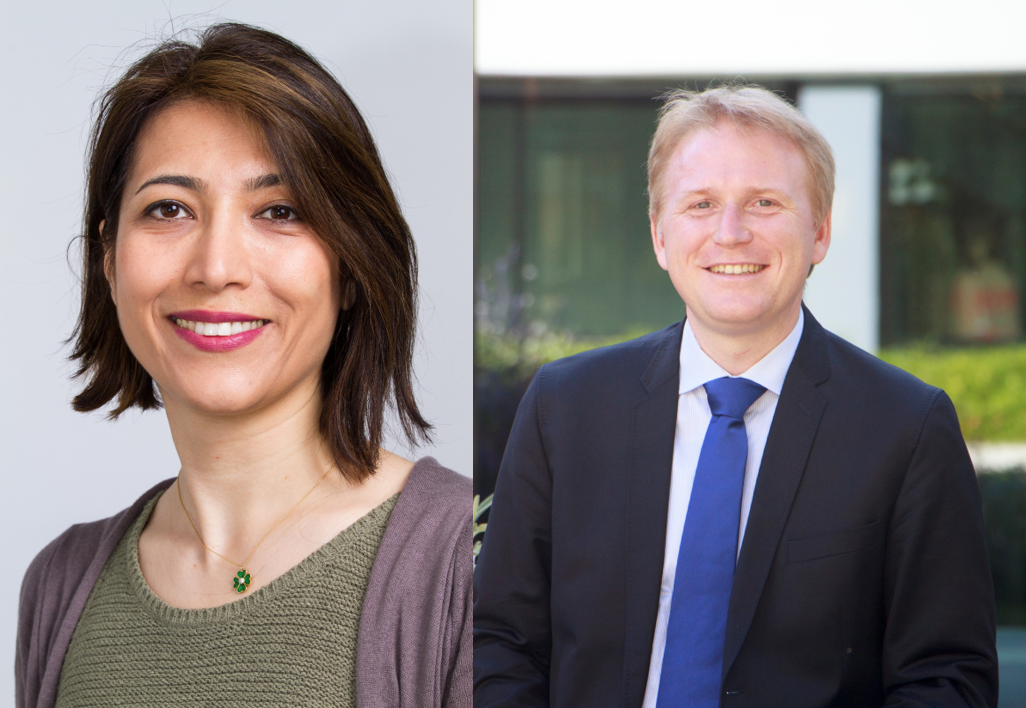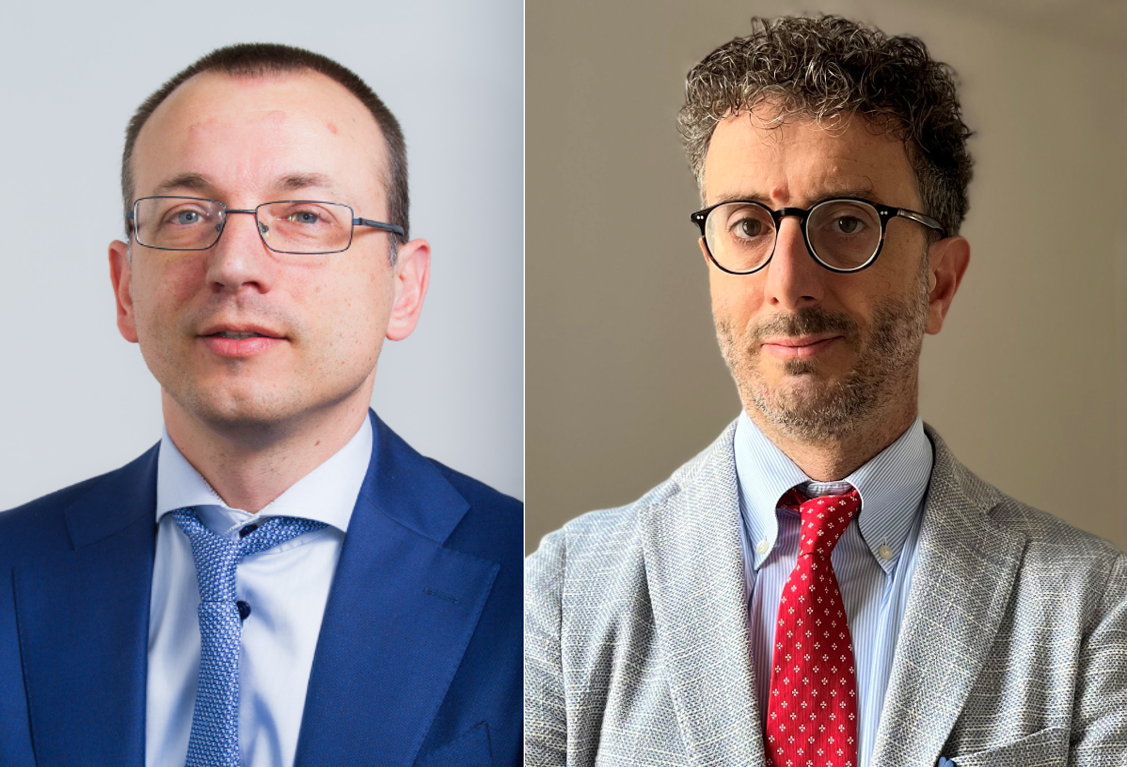A major congratulations to Professors Pierre Jacob, Sara Rezaee Vessal, Jeroen Rombouts, Kamélia Daudel, Roberto Reno and Felix Papier, who have received funding from CY Initiative for 2024 CY Emergence Program in May 2024! Their projects are among the 18 projects financed by CY Initiative in 2024.
CY Initiative is a shared strategic project, led by CY Cergy Paris University & ESSEC Business School. It aims to transform the western Ile-de-France region into a thriving, first-class research hub. CY Initiative has already funded nearly 150 research projects to the tune of around €13.5 million. The aim of the initiative is to support scientific excellence and international collaboration for researchers in the CY Initiative scientific community. There are three funding programs: the Ambition Program (for larger-scale, medium-term projects led by research groups or centers); the Talent Program (for early career researchers), and the Emergence Program. ESSEC researchers were given funding through this third program.
The Emergence Program is designed to support individual researchers (as opposed to research groups or centers) as they develop an innovative research project. The goal is to ultimately obtain funding from French, European, or international agencies.The grants last for up to two years.
Pierre Jacob (principal investigator) and Kamélia Daudel (researcher): GEOCARLO – Improving Markov chain Monte Carlo with geometry

Partners: École des Ponts ParisTech (France), Universities of Bristol, Oxford & Warwick (UK), British Columbia (Canada), Chicago, and Rutgers (USA)
About the project: We will develop new Markov chain Monte Carlo (MCMC) methods to quantify uncertainty in data analysis, aiming to assist high-stake decision-makers. MCMC methods help approximate integrals in high-dimensional spaces, such as calculating the probability of rare events. Widely used in Bayesian statistics, MCMC is an essential tool to quantify uncertainty about models and predictions, but current MCMC methods are too slow for the growing volume of data and expanding models. Here we aim to design new MCMC algorithms that leverage specific problem features and modern computing hardware.
About the researchers
Pierre Jacob is a professor of statistics at ESSEC Business School. He develops methods for statistical inference, time series analysis, Monte Carlo, methods to compare models or to estimate latent variables. He teaches courses on forecasting and statistics in general. He also coordinates the PhD track in Data Analytics. He is also an Associate Editor of the Journal of the Royal Statistical Society: Series B.
Kamélia Daudel is an assistant professor of statistics at ESSEC Business School. Prior to that, she was a postdoctoral researcher in the Department of Statistics at the University of Oxford working with Arnaud Doucet. She defended her PhD in 2021. Her current research lies in the field of Approximate Inference. She is particularly interested in Variational Inference methods using flexible families of divergence measures.
Sara Rezaee Vessal (principal investigator) and Felix Papier (researcher), Responsive CSR: Adaptive Policy Evaluation

Partners: Toulouse Business School Education, HEC (France)
About the project: We will assess the effectiveness of current corporate social responsibility policies, looking at the policy impact in different sectors in order to ultimately provide more targeted guidance to policymakers. We will explore both firm-level and industry-level data in order to develop a framework for evaluating the effectiveness of corporate social responsibility policies.
About the researchers:
Sara Rezaee Vessal is an assistant professor of operations management at ESSEC Business School. Her research focuses on collaboration within and between firms in the context of new product development, sustainable and socially responsible supply chains, and operation strategy. Her research primarily includes analytical modeling using game theory, dynamic programming, and empirical methods.
Felix Papier is a Supply Chain Management Professor in the Operations Management Department at ESSEC Business School since 2011 and Holder of the ESSEC Global Circular Economy Chair. His research and teaching focuses on supply chain and operations strategy, sustainable and socially-responsible operations, circular economy, supply chain due diligence and information sharing in supply chains, and humanitarian operations. Previously, he was the Academic Director of the ESSEC & Mannheim Executive MBA (2015-2017) and the Dean of ESSEC Pre-Experience Programs (2017-2022).
Jeroen Rombouts (principal investigator), and Roberto Reno (researcher), RISK-SHIFTS – New Econometric Tools for Shifting Risks

Partner: THEMA (CYU) (France), with researchers Andreas Heinen, William Kengne, and Aristide Houndet Oungan
About the project: The global economy has faced severe periods of distress, such as the COVID-19 pandemic and rising inflation, geopolitical instability, along with fragilities from algorithmic trading. These events challenge existing time series models for risk management, especially concerning the sovereign bond market. Our research aims to develop new econometric methodologies to handle these risks, focusing on both low-frequency (discrete time) and high-frequency (continuous time) models. These methods will address abrupt economic changes and enhance our understanding of crises. We will apply these models to study time series dynamics, estimate multifactor stochastic volatility, forecast risk measures, and assess the impact of algorithmic trading and flash crashes.
About the researchers:
Jeroen Rombouts has been a professor at ESSEC Business School since 2013. He is the Director of the Accenture Strategic Business Analytics Chair. He obtained his PhD in Econometrics in 2004. As a full professor of statistics and econometrics, he teaches big data analytics and data science courses in the MBA and Master’s programs at ESSEC in Paris and Singapore. He researches predictive analytics, in particular time series analysis and forecasting. He has published numerous scientific articles, frequently organizes workshops, and is an associate editor of several quantitative scientific journals. His research has been funded by the European Commission and the French National Research Agency. He frequently acts as an expert consultant on strategic business analytics and data science topics. Prior to joining ESSEC Business School, Jeroen was an associate professor at HEC Montreal.
Roberto Renò is Professor at the IDS Department (Information Systems, Decision Sciences and Statistics) at ESSEC Business School. Formerly, he was Visiting Professor at the Carey Business School at the Johns Hopkins University of Baltimore; Senior Fellow at Collegio Carlo Alberto, Turin; Fernand Braudel Fellow at the European University Institute in Florence; Full Professor at the University of Verona; Associate and Assistant Professor of Quantitative Finance at the University of Siena.Visiting Professor at LUISS, Rome and IMT, Lucca. He holds a PhD in Financial Mathematics at Scuola Normale Superiore in Pisa, and a Degree in Physics at the University of Pisa. His research focuses on various aspects of econometrics and finance, with specific contributions in asset pricing, high frequency financial econometrics, and nonparametric statistics.









